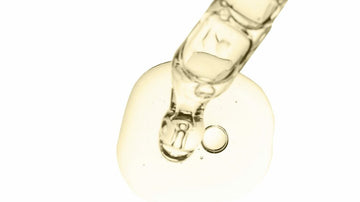Aging is inevitable. But fearing it? That’s something we’ve been taught. For many women over 50, the fear of aging isn’t just about wrinkles or grey hair – it’s about being dismissed, overlooked, or replaced. Understanding what’s behind that fear is the first step toward aging on your own terms.
What Is Ageism — and How Does It Show Up in Our Lives?
The World Health Organization defines ageism as “the stereotypes (how we think), prejudice (how we feel), and discrimination (how we act) towards others or oneself based on age.”
Yes — even towards oneself. And that internalized ageism can be far more damaging than the comments we hear from others.
Ageism doesn’t just live in the workplace or media – it shows up in the mirror, in birthday cards, and even in how we talk about our bodies.
-
“I’m too old to wear that.”
-
“You look good… for your age.”
-
“Just having a senior moment!”
These may seem harmless, but over time, they shape how we see ourselves — and they can directly affect our health.
Ageism at Work: The Silent Saboteur
Ageism in the workplace is both widespread and under-reported. In fact, the AARP reports that 65% of workers over 55have experienced age-based discrimination — often beginning as early as age 50.
Jennifer Schramm, senior policy advisor at the AARP, called age discrimination one of the leading drivers of long-term unemployment among people 50+. And here in Canada, ageism is estimated to cost the economy $56 billion annually in lost productivity.
If you’ve ever worried about being replaced, sidelined, or seen as “less capable” simply due to your age — you’re not imagining it. But that doesn’t mean we have to accept it.
Aging and Health: The Power of Positive Beliefs
Dr. Becca Levy, author of Breaking the Age Code, has spent decades studying how our beliefs about aging affect our health. Her research shows:
-
Negative age beliefs increase risk of dementia — even in people with high-risk genes.
-
Positive beliefs improve physical, mental, and cognitive health.
-
People with a positive mindset about aging live 7.5 years longer on average.
Why? Because your mindset influences stress, which affects cortisol, the hormone linked to inflammation, fatigue, and chronic disease. It also impacts how likely you are to take care of yourself, stay active, and seek preventive care.
In other words: how you think about aging shapes how you experience it.
Mobility, Strength, and Staying Vibrant at Every Age
Yes, some health declines are due to genetics or luck. But many of the changes we fear (like mobility loss, weakness, or fatigue) are preventable with movement, muscle-building, and nourishing food.
Still, the biggest barrier often isn’t physical – it’s mental.
When we assume decline is inevitable, we stop challenging ourselves. We stop showing up. But when we expect strength, resilience, and vibrancy? We act accordingly — and that action builds results.
Aging Without Apology: Redefining What’s Possible
At NEXT CHPTR SKIN™, we believe aging isn’t something to fight – it’s something to embrace, wisely.
So whether you let your hair go silver or keep your highlights, whether you wear crop tops or cozy knits, the real question isn’t how you age — it’s how you feel about it.
Because your thoughts about aging matter. They shape your energy, your health, your confidence, and your future.
The Bottom Line?
Aging isn’t the enemy. Fear is.
Let’s ditch the outdated narratives and embrace a new chapter rooted in strength, agency, and evidence-based self-care. Because beauty doesn’t end at 50 – it evolves.












